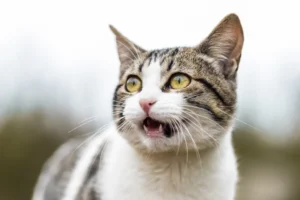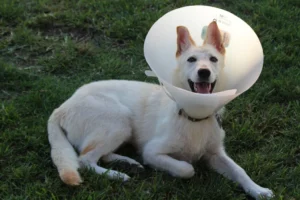If you’ve noticed your cat coughing after being spayed, you may be wondering what could be causing this issue. Let’s take a closer look at why this might be happening and what you can do to help your furry friend feel better.
Coughing after being spayed can be a concerning symptom for cat owners, but it’s important to understand that this is not a common or expected side effect of the spaying procedure. There could be several reasons why your cat is coughing, ranging from respiratory infections to allergies. To address this issue, it’s crucial to consult with your veterinarian to determine the underlying cause and appropriate treatment plan.
Possible causes of coughing in cats after being spayed
If you’ve noticed your cat coughing after being spayed, there could be several reasons behind this concerning behavior. Respiratory infections are a common culprit, as the surgery may have temporarily weakened your cat’s immune system, making them more susceptible to infections. Allergies could also play a role, especially if your cat is exposed to new irritants post-surgery. Additionally, anesthesia-related issues can sometimes cause respiratory distress, leading to coughing fits in some cats.
It’s essential to monitor your cat closely for any signs of discomfort or distress, as coughing can be a symptom of a more serious underlying issue. Keep an eye out for wheezing, labored breathing, lethargy, or loss of appetite. If you notice any of these signs, it’s crucial to consult your veterinarian for proper evaluation and treatment.
Signs to watch for in a coughing cat
When your cat is coughing after being spayed, it’s essential to pay attention to specific symptoms and behaviors that may indicate a more significant problem. In addition to coughing, watch out for wheezing, which could indicate an obstruction in the airways. Labored breathing is another concerning sign that your cat may be struggling to breathe properly. If you notice lethargy, loss of appetite, or weight loss, these could all be red flags that your cat’s coughing is more than just a passing issue.
It’s crucial to observe your cat’s overall well-being and behavior carefully. Any persistent or concerning symptoms should prompt a visit to the vet for a thorough evaluation. Your veterinarian can help determine the root cause of your cat’s coughing and recommend the appropriate course of action to address it effectively.
Treatment options for coughing cats
If your cat is coughing after being spayed, it could be due to various reasons such as respiratory infections or allergies. Your veterinarian may recommend antibiotics to treat any infections causing the cough. Allergy management strategies like changing your cat’s diet or using hypoallergenic products may also be suggested. In some cases, corticosteroids or cough suppressants may be prescribed to alleviate the symptoms. Be sure to follow your vet’s advice closely for the best outcome.
Preventative measures to keep your cat healthy post-spaying
After your cat has been spayed, it’s important to support their overall health to prevent issues like coughing. Keep their environment clean and free of irritants that could trigger coughing fits. Provide regular exercise and a balanced diet to boost their immune system and overall well-being. Regular check-ups with your veterinarian can help catch any health issues early on. Additionally, ensure your cat stays up-to-date on vaccinations to prevent respiratory infections that could lead to coughing episodes.
Additional Unique Insight:
Maintaining a consistent moisture level in your cat’s environment can also help prevent coughing. Dry air can irritate your cat’s respiratory system, so consider using a humidifier to keep the air in your home at an optimal level of humidity.
Remember, each cat is unique, and what works for one may not work for another. Always consult your veterinarian for personalized advice and tailored treatment options. Your cat’s health and well-being are a top priority, so stay vigilant and proactive in keeping them happy and healthy post-spaying.
The importance of veterinary follow-up care
After your cat has been spayed, it’s crucial to prioritize regular check-ups and follow-up appointments with your veterinarian. Monitoring your cat’s recovery closely can help identify any potential issues early on, including coughing. Prompt treatment can address any complications swiftly. Invest time in these appointments to ensure your feline friend’s well-being is in top shape post-surgery.
Fun facts about spaying/neutering and its impact on cats
Spaying and neutering your cat not only helps control pet overpopulation but also has significant health benefits. Reducing the risk of certain health conditions, such as pyometra in females, can lead to a longer and healthier life for your furry companion. By spaying/neutering, you’re contributing to improving your cat’s quality of life and preventing future health complications. Don’t hesitate to chat with your vet about the positive impacts of this important procedure.
Unique insight: Did you know that spaying/neutering can also help decrease aggression in cats, making them more adjusted and easy to live with? Consider this added benefit when deciding to spay/neuter your feline friend.
Conclusion: Ensuring your cat’s well-being post-spaying
It is crucial to prioritize your cat’s health after the spaying procedure. Keep a close eye on any unusual symptoms like coughing, as they could indicate underlying issues that need prompt veterinary attention. Remember, your furry friend’s well-being is the top priority, so don’t hesitate to seek professional help if you have any concerns.
When it comes to your cat’s recovery, patience and vigilance are key. Ensure your cat gets plenty of rest, access to fresh water, and a comfortable environment to recuperate in. Keep an eye on their incision site and monitor their behavior closely for any changes.
Remember, every cat is unique, so it’s essential to pay attention to your cat’s specific needs and behaviors during the post-operative period. By staying observant and proactive, you can help ensure a smooth recovery process for your beloved companion.
And always remember, a healthy and happy cat is a well-loved cat. So, keep those purrs coming and continue to provide the best care possible for your furry friend.
Alex, a passionate animal lover, has experience in training and understanding animal behavior. As a proud pet parent to two dogs and three cats, he founded AnimalReport.net to share insights from animal experts and expand his knowledge of the animal kingdom.




